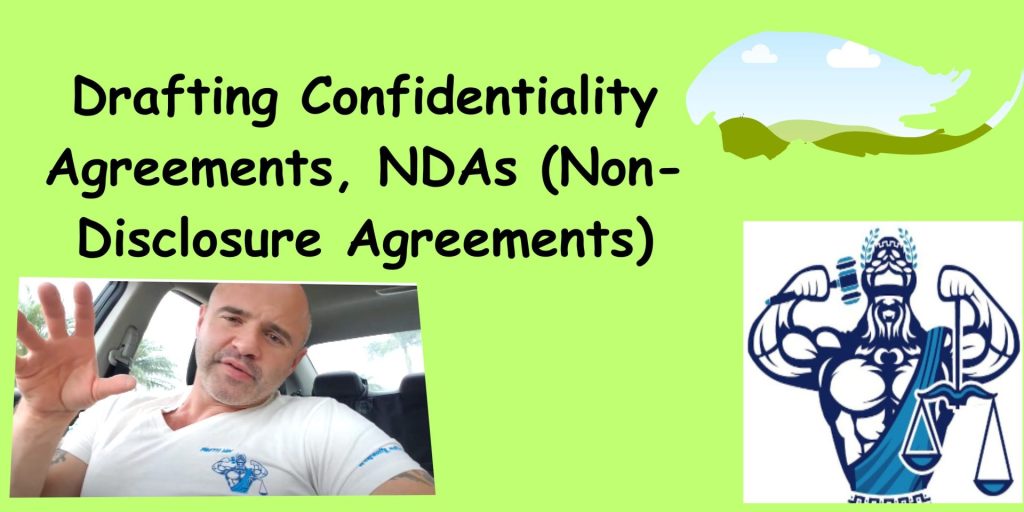Here at the Law Office of Vincent Miletti, Esq. and the home of the #UnusuallyMotivated movement, we take pride as a resilient and dependable legal services firm, providing such services in both a traditional and online, web-based environment. With mastered specialization in areas such as Employment and Labor Law, Intellectual Property (IP) (trademark, copyright, patent), Entertainment Law, and e-Commerce (Supply Chain, Distribution, Fulfillment, Standard Legal & Regulatory), we provide a range of legal services including, but not limited to traditional legal representation (litigation, mediation, arbitration, opinion letters, and advisory), non-litigated business legal representation and legal counsel, and unique, online legal services such as smart forms, mobile training, legal marketing, and development.
Still, here at Miletti Law®, we feel obligated to enlighten, educate, and create awareness, free of charge, about how these issues and many others affect our unusually motivated® readers and/or their businesses. Accordingly, to achieve this goal, we have committed ourselves to creating authoritative, trustworthy, & distinctive content. Usually, this content is featured as videos posted on our YouTube Channel https://www.youtube.com/channel/UCtvUryqkkMAJLwrLu2BBt6w and blogs that are published on our website WWW.MILETTILAW.COM. With that, the ball is in your court and you have an effortless obligation to subscribe to the channel and sign up for the Newsletter on the website, which encompasses the best way to ensure that you stay in the loop and feel the positive impact of the knowledge bombs that we drop here!
As the authoritative force in Employment Law, it only seemed right to introduce one of the many upcoming series in which we introduce a variety of topics that looks to educate and deliver in a manner that only Miletti Law® can. To that end, this blog is Part XI of our series on “Best Practices for Reducing Litigation Risks when Hiring from Competitors.” In Part X, we hammered on the importance of “Seeking Full Disclosure from Candidates” in an attempt to minimize and mitigate the risk of litigation for hiring from a competitor. Regarding this practice, we mentioned that the hiring employer should seek full disclosure from a potential candidate, including copies of any employment policies, incentive or stock compensation covenants, contracts, or other documents in which possible restrictive agreements on post-employment activities are contained.
As a continuation of this series, we now move our discussion forward by hammering on the importance of “Screening & Interviewing Candidates,” which is another thing the hiring employer may have to consider in an attempt to avoid, minimize, and/or mitigate the risk of litigation for hiring from a competitor.
Hiring from Competitors – Screening & Interviewing Candidates
Interviews comprise a critical step of the hiring process. Unfortunately, some employers have notoriously used job interviews to gather and collect intelligence concerning their competitors. In such scenarios, interviewees and potential candidates are sometimes elicited and induced, inadvertently (at times intentionally), to reveal confidential information concerning a competitor’s business, such as profit margins, future strategies and plans, client lists, and/or customer identities.
However, as we have mentioned in the past blogs under this series, interviewees would be violating common law confidentiality principles, post-employment confidentiality restrictions, and/or existing confidentiality agreements when they engage in the disclosure of such information. For this reason, in addition to requiring that interviews where employees start disclosing confidential and/or sensitive information be stopped immediately, hiring employers should ensure that interviewers have been trained on the importance of avoiding asking questions that might elicit unauthorized and improper disclosure of proprietary information.
As part of the screening process, potential candidates should be briefed right before the start of interviews that any disclosure, whether voluntary, elicited, or provoked, of a competitor’s information that may be considered confidential is absolutely prohibited. Further, when referring to their work projects, responsibilities, and/or accomplishments, interviewees should be discouraged and required not to reveal the identities and/or mention the names of customers and/or clients. This includes discouraging interviewers from asking interviewees for any information concerning the competitor’s non-public business or client information. As mentioned above, interviewers should be keen to terminate interviews as soon as candidates start revealing information and/or initiating conversations that would lead to disclosing sensitive or confidential information.
In Part XII of this series and our blog titled “Hiring from Competitors – Knowing Who You Are Hiring,” we will hammer on the importance of doing thorough homework to know the person an employer would be hiring as another crucial step a hiring employer should take to avoid the risk of litigation for hiring from a competitor.
In the meantime, stay tuned for more legal guidance, training, and education in other series in progress. In the interim, if there are any questions or comments, please let us know at the Contact Us page!
Always rising above the bar,
Isaac T.,
Legal Writer & Author.
 Professional Legal & Business Services And Representation - English & Espanol!
Professional Legal & Business Services And Representation - English & Espanol!

 314-648-2586
314-648-2586 CALL US NOW
CALL US NOW








